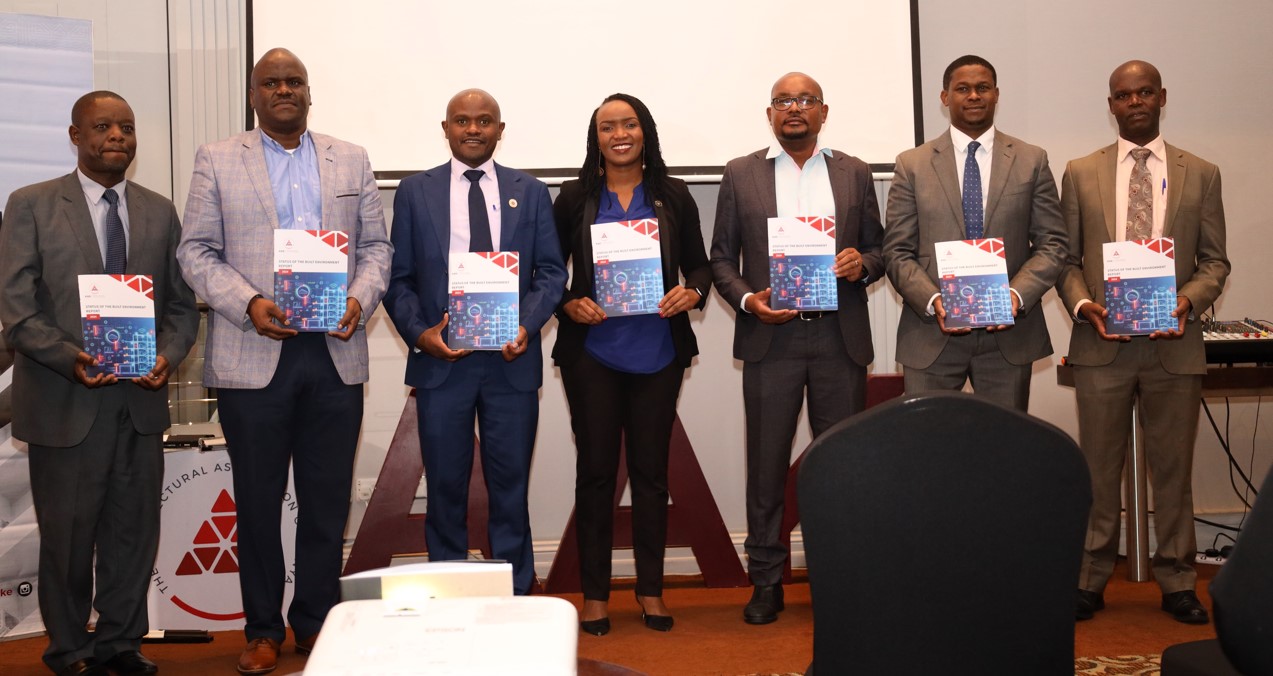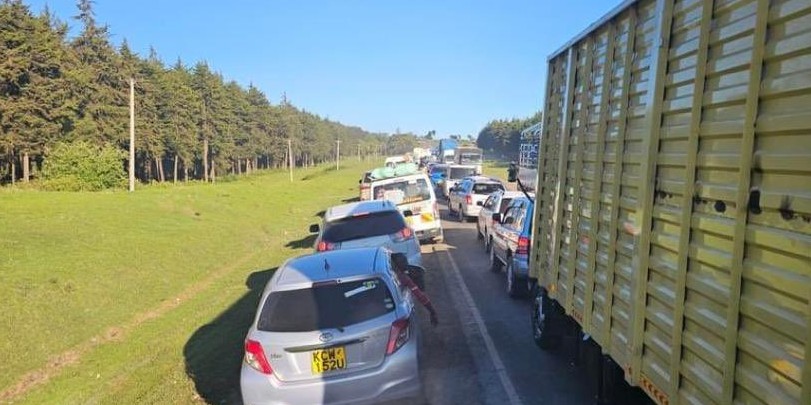Alarm as over 50 per cent of buildings in Kenya deemed not entirely safe

Respondents from the survey expressed a strong need for reforms in urban development, particularly focusing on adherence to zoning and building laws.
More than 50 per cent of residential, mixed-use and commercial buildings in the country are not entirely safe for human use, a survey report has warned.
Titled the 'Status of the Built Environment' by the Architectural Association of Kenya (AAK), the report says out of the structures surveyed during the Financial Year 2023/24, only 43 per cent were certified completely safe for human use.
More To Read
- Mombasa launches major crackdown on unsafe buildings with 60-day ultimatum
- India: Four school children dead, several feared trapped after roof collapse in Rajasthan
- Mombasa authorities arrest developers, engineers defying stop orders after building collapse
- KDF officers deployed to demolish sinking 11-storey building in Mombasa
- Evacuation starts as Mombasa readies for controlled demolition of dangerous building
- AAK attributes cracks in Mombasa building teetering on collapse to structural failures
A total of 1,333 buildings across the country were audited by the National Building Inspectorate (NBI), out of which 42 (3 per cent) were deemed dangerous, requiring immediate testing and in some cases, demolition.
An additional 246 buildings (18 per cent) were marked as unsafe, 453 (34 per cent) classified as fair, and 570 (43 per cent) identified as safe.
"These findings underscore the urgent need for stricter oversight and enforcement to address structural safety concerns and support safer urban development," the report says.
A group of architects and engineers at the launch event attributed the findings to significant lapses in adherence to construction and planning laws, coupled with corruption among the authorities responsible for ensuring safety standards.
Compromised structural integrity
They revealed that both county and national government bodies charged with overseeing building approvals have fallen short in enforcing regulations, leading to compromised structural integrity across various regions.
"These failures have left countless buildings vulnerable to potential disasters, putting the lives of occupants at risk," said Juma Oino from the Nairobi Physical Planning and Land Use Liaison Committee.
He further warned that the ongoing negligence could result in dire consequences if immediate action is not taken.
At the same time, 64 per cent of residents feel that laws and regulations favour developers over communities.
Further, the report reveals that nearly a decade after its establishment, the National Building Inspectorate has audited a total of 20,649 buildings in various counties.
Of these, 962 structures were classified as dangerous, necessitating immediate testing and potential evacuation or demolition.
Additionally, 11,662 buildings were deemed unsafe and required extensive rehabilitation.
Despite this, only 210 buildings underwent testing for structural integrity.
Other Topics To Read
"This represents only a fraction of the total flagged, and underscores the need for increased technical and financial capacity of the inspectorate to better address public safety risks,' the report says.
Urban development reforms
Consequently, respondents from the survey expressed a strong need for reforms in urban development, particularly focusing on adherence to zoning and building laws, alongside controlled development and density.
They also called for an end to "beacon-to-beacon" constructions and advocated for mandatory sustainability measures, and the need for rigorous oversight, penalties for non-compliance, and demolition of illegal structures.
In addition, the residents highlighted infrastructure development and upgrades, noting that rapid urban densification has caused a strain on roads, water supply, sewage systems, and drainage.
Many also lamented the outdated state of existing infrastructure.
"The infrastructure we have is what we had 50 years ago, yet we now have 50 times more houses, cars and people," one respondent said.
Overall, community satisfaction with the country's built environment is predominantly negative, with 73 per cent of respondents expressing dissatisfaction, emphasising that most residents believe the current state of their surroundings is inadequate.
In contrast, only nine per cent of residents reported being content with their community's built environment, while 19 per cent remained neutral.
"The relatively small percentage of satisfaction indicates considerable gaps in addressing the needs and desires of the community," the report says.
Top Stories Today















































